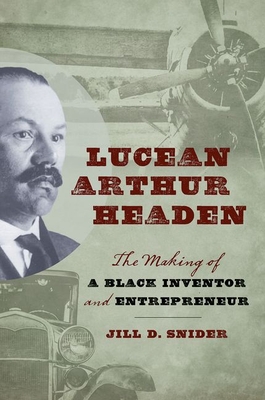Lucean Arthur Headen: The Making of a Black Inventor and Entrepreneur

Lucean Arthur Headen: The Making of a Black Inventor and Entrepreneur
Though Headen left few personal records, Jill D. Snider recreates the life of this extraordinary man through historical detective work in newspapers, business and trade publications, genealogical databases, and scholarly works. Mapping the social networks his family built within the Presbyterian church and other organizations (networks on which Headen often relied), she also reveals the legacy of Carthage's, and the South's, black artisans. Their story shows us that, despite our worship of personal triumph, success is often a communal as well as an individual achievement.
PRP: 336.09 Lei
Acesta este Pretul Recomandat de Producator. Pretul de vanzare al produsului este afisat mai jos.
302.48Lei
302.48Lei
336.09 LeiIndisponibil
Descrierea produsului
Though Headen left few personal records, Jill D. Snider recreates the life of this extraordinary man through historical detective work in newspapers, business and trade publications, genealogical databases, and scholarly works. Mapping the social networks his family built within the Presbyterian church and other organizations (networks on which Headen often relied), she also reveals the legacy of Carthage's, and the South's, black artisans. Their story shows us that, despite our worship of personal triumph, success is often a communal as well as an individual achievement.
Detaliile produsului








